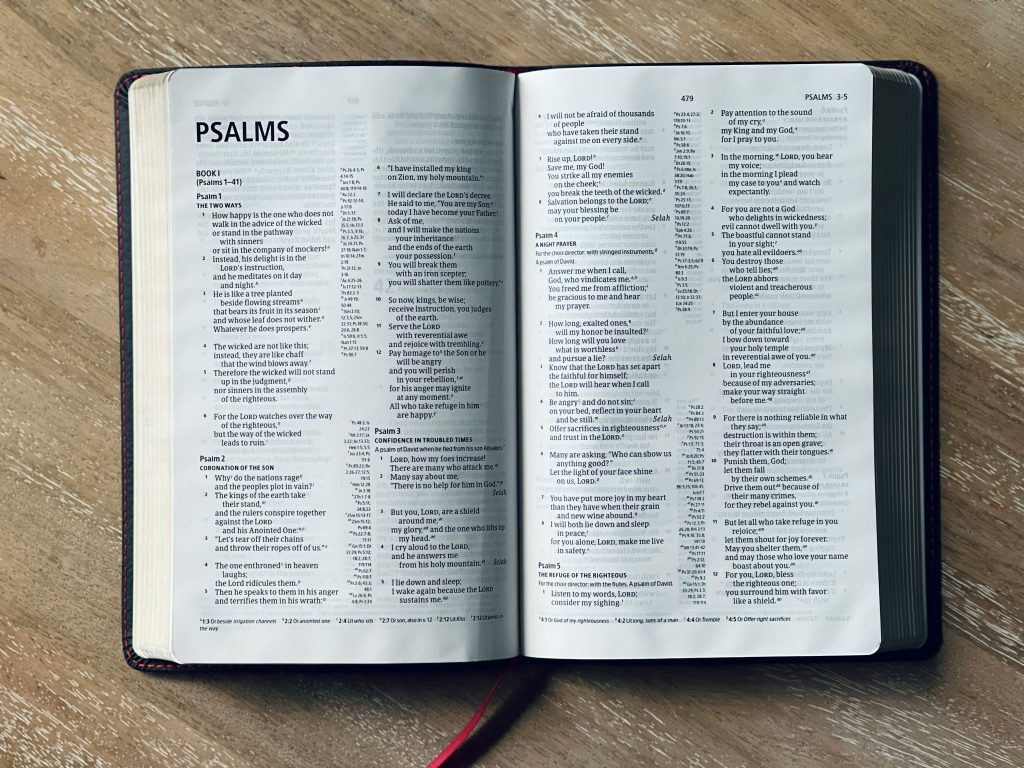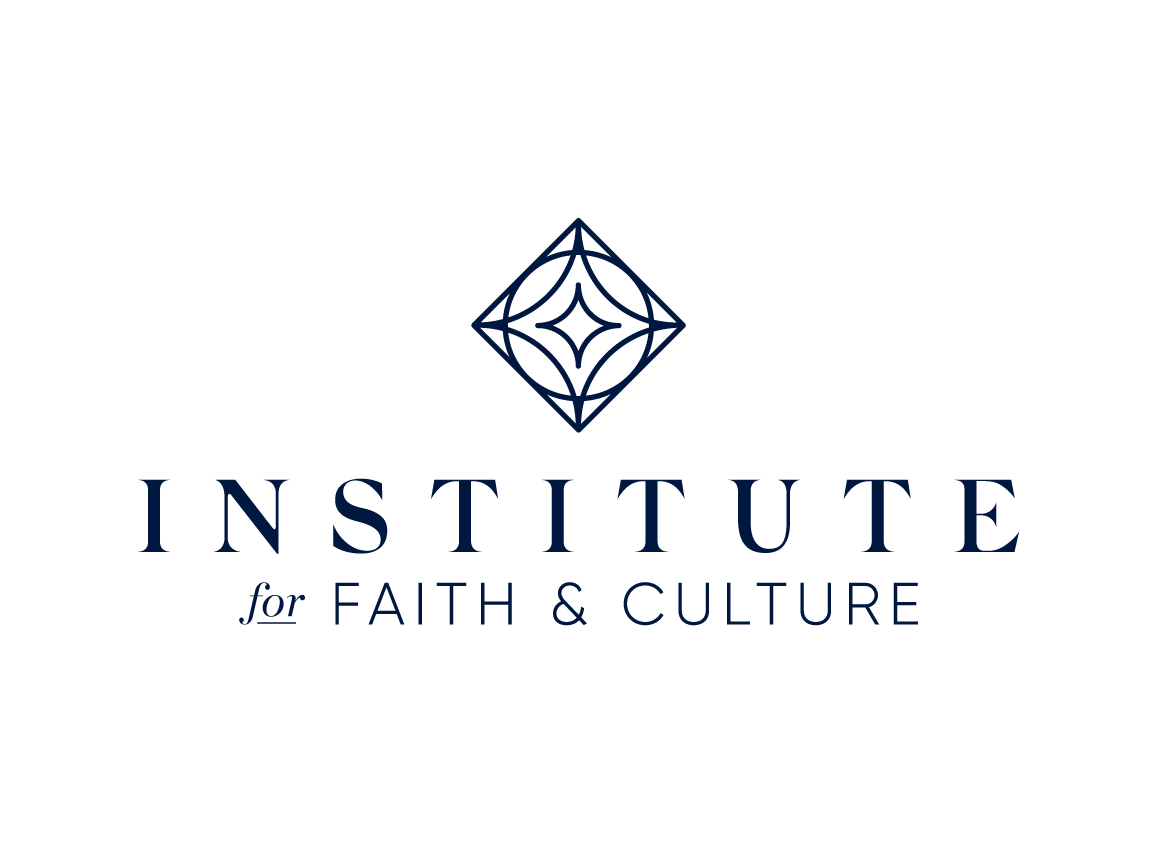The imprecatory psalms have the potential to be a powerful resource for the church. They give us words to speak the often-unspeakable truth about a sin-riddled world. They train us to bring our agony and our anger into God’s presence. They testify to us of a God who is powerful, righteous, loving enough to address oppressive violence. They teach our hearts to long for God’s cosmos-renewing justice—to reach for it in prayer. They condition us to bypass revenge and entrust ourselves to him who judges justly. They cultivate our security with God as we encounter the safety of a reciprocal relationship in which we are heard and held. They press us deeper into God’s promises of justice, and they press God’s hope deeper into us.
But most churches don’t make a practice of singing God’s justice songs, and many Christians aren’t even aware that these psalms are part of their Bibles. Why is that? If our song-writing God has composed justice songs, if he desires to hear us sing them, if he’s given them to nurture our souls in the singing, why are we so slow to take up their cry?
There are undoubtedly many reasons—some of which will depend upon one’s personal history, theological tradition, and liturgical practices—but I think there are three myths in particular about the imprecatory psalms that impede our embrace of Yahweh’s justice songs. One is ethical, one is theological, and one is existential. And though we may never consciously articulate these objections, I imagine that for many of us they’re likely operating under the surface, fostering just enough doubt and discomfort to keep us from pleading for justice together—and to keep us from receiving the blessings that these psalms offer.
Myth #1: Singing for justice is incompatible with Christian love.
Jesus, of course, calls us to love our enemies—to seek their good, not their harm—and most of us cannot fathom how asking for God’s in-breaking judgment could possibly be an obedient act of love. But the New Testament does not share our unease. In fact, the New Testament that commands enemy love simultaneously commends imprecatory prayer.
The same Jesus who in Luke 6 enjoins his disciples to love their enemies (6:27–28) in Luke 18 exhorts them to pray after the example of the persistent widow: “Give me justice against my adversary!” (18:8). And Christ suggests that such justice prayers are manifestations of the kind of faith he desires to find when he returns (18:8). That’s nothing less than a Messianic endorsement of imprecatory prayer from the very Messiah who demands our life of love. Jesus doesn’t detect the conflict we’re so quick to assume is there.
In Revelation 6, John sees a vision of the souls of the martyrs in heaven, and what are they doing? They’re praying in the language of Psalm 79: “O Sovereign Lord, holy and true, how long before you will judge and avenge our blood on those who dwell on the earth?” (Rev 6:10; cf. Ps 79:10). According to John, if you could hear the holy worship of heaven right now, you’d hear among the choruses of sinless praise, adoration, and thanksgiving, the song of an imprecatory psalm.
The question, of course, is, How? How can the prayer for justice be an act of enemy love? Most obviously, we can pray that God would bring justice through repentance, and the psalms pray that way, too. Psalm 83 overtly pleads, “Fill their faces with shame, that they may seek your name, O Lord.” And the Psalter begins with the invitation of Psalm 2—“Kiss the Son, lest he be angry and you perish in the way” (v. 12)—a call to repentance that frames and conditions every justice song that follows. The process of conversion involves nothing less than the death of the old man and the resurrection of the new in Jesus, and it is fitting for a community conceived by grace to pray that God would judge the wicked by crucifying them with Christ and bringing them to himself in repentance.
But even apart from repentance, asking God to interrupt the wicked can be an act of love because God’s interruption of the violently wicked isn’t just for the good of their victims—it’s for the good of the wicked, too. Real love seeks the good of the other, and it is not good for the wicked to be perpetually permitted to satisfy their every harmful desire. Violence not only destroys the victims of violence; it also destroys the violent themselves. Every new act of violence compounds the perpetrator’s guilt, opens the offender to more severe judgment from God, confirms the wicked in his delusions about God and the world, and deforms the victimizer’s character by making unjust predation an increasingly embedded and instinctive way of being. The path of violence is a descent into inhumanity in which the enemy harms himself in his harming of others.
So when the psalms beg God to shatter the bloodthirsty enemies’ teeth, break their arms, expose their secret plots, disappoint their evil schemes, frustrate the purposes of their hellbent hearts, and even in some cases to cut them down, they’re asking God to mercifully prevent their enemies from sinking further into the acidic abyss of violence. They’re praying that God would keep them from succeeding in their self-defeating pursuits. They’re pleading for God to confront them with the undeniable truth of who he is and who they’ve become. They’re seeking in song the good of enemies who resolutely seek their own ill in violence.
And one way that we can love those who are devoted to destroying others and themselves is by singing the psalms and asking God to stop them.
Myth #2: Singing for justice is inessential to the Christian calling.
That is, even if it’s ethical for Christians, we’re not convinced that justice prayer is one of God’s priorities for his church. Perhaps these psalms were central to what God was doing with Israel, but we are concerned with discipleship, evangelism, preaching, worship, deeds of mercy—and singing for justice rarely comes on the radar.
Allow me to suggest that we don’t see how the imprecatory psalms fit into the church’s calling because, more fundamentally, we haven’t appreciated how the church fits into God’s story. Our sense of what we’re supposed to do is always determined by the story we believe we’re living in, and the Bible tells a bigger story than we tend to expect or detect.
The story of the Bible is the story of sacred space—the story of God building a holy house for his holy presence with his holy people. Yahweh fashions the cosmos to be a temple where his glory will dwell, and he plants a garden in Eden as his first sanctuary upon the earth. He creates Adam as a son of God—made in the image of his Father—and installs him in Eden as a royal priest in God’s presence. Adam the priest is to serve and guard the garden (Gen 2:15), protecting its holiness like the Levites and priests in the tabernacle (e.g., Num 3:7–10). Adam the king is to subdue the earth and exercise dominion (Gen 1:28), expanding the borders of God’s sanctuary to the ends of the earth. This royal-priestly son of God is deputized to bring God’s cosmic temple to completion—to tend and extend sacred space until the whole earth is full of the glory of the Lord. That is the original human calling.
When the unholy serpent enters the garden, Adam the priest-king should have driven him out. That is what faithful priests do. But Adam doesn’t, so he is driven out instead. Yet, even amid exile, God promises that from the line of the woman will arise a son who will be the royal priest Adam failed to be. He will crush the serpent’s head underfoot, restore what was lost in Eden, and finish the work of consummating creation as the temple of the Lord (Gen 3:15).
Everything that follows in the story of the Bible flows from the stream of Genesis 1–3. Yahweh calls Israel his firstborn son (Exod 4:22)—a royal priesthood (Exod 19:6), a new Adam—and they’re to guard the holiness of the community where God abides and subdue the land, driving out the serpentine nations from Canaan so that the Lord can make his home on that ground. The Davidic king is an Adamic son of God, too—a priestly king. He guards the temple-kingdom from threats inside and out, and the hope throughout scripture is that a son from David’s line will one day make his enemies his footstool, exercise global dominion, and prepare the earth as the dwelling place of God’s glory.
That is the story within which the psalms sing for justice. In the imprecatory psalms, the king and his community both pray as the royal-priestly sons of God that they are. They take aim at every threat to the life, joy, purity, and peace of God’s temple-kingdom—whether it’s abusive leaders and unjust violence within Israel’s own midst or the assaulting nations arrayed for battle—and they beg God to drive it out, turn it back, stop it from polluting and preying upon the community where Yahweh has made his holy home. At times, they even ask God to expand the bounds of his sanctuary to encompass the whole world; they subdue the earth in song, as in Psalm 72:
Give the king your justice O God,
and your righteousness to the royal son! (v. 1)
May he defend the cause of the poor of the people,
give deliverance to the children of the needy,
and crush the oppressor! (v. 4)
May he have dominion from sea to sea,
and from the River to the ends of the earth!
May desert tribes bow down before him,
and his enemies lick the dust! (vv. 8–9)
Blessed be the Lord, the God of Israel,
who alone does wondrous things.
Blessed be his glorious name forever;
May the whole earth be filled with his glory! (vv.18–19)
Perhaps you hear it there in Psalm 72—crushed oppressors, enemies licking dust, a triumphant son of God. The imprecatory psalms are full of imagery drawn from Genesis 3: foes who are serpents and petitions for God’s head-striking, foot-stomping judgment. Why? Because these psalms are the justice songs of the sons of God, and they are stepping on serpents through prayer.
When Jesus arrives, the Son of God, a priest and king, he fulfills Adam’s calling. He strikes the serpent underfoot at the cross. He guards his people and triumphs over their every enemy. He builds a holy house for God when he pours out his Spirit on the church. And he begins to fill up the earth with the temple of Yahweh’s glory-presence as he leads his Spirit-filled people with the gospel into the nations until the day when our true priest-king will expel every uncleanness and consummate creation as the sanctuary of God.
Now, Christians, how do you fit into that story? In Jesus Christ, you are a royal priesthood, the sons and daughters of God. You have inherited the calling of God’s priest-kings through the ages. One of the ways we embrace that calling is by singing God’s justice songs.










